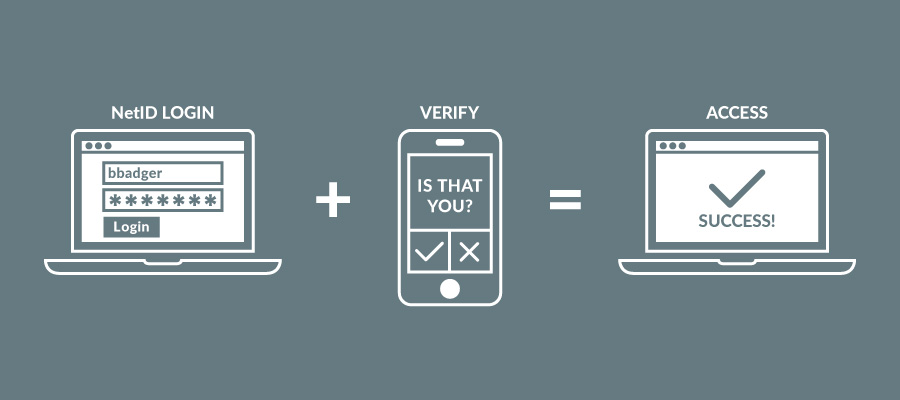To prevent unauthorized access to your online identity, UW–Madison began rolling out multi-factor authentication from Duo Security (MFA-Duo) to students on Sept 9. All students are required to enroll by Oct 31 .
Multi-factor authentication combines something you know (your NetID and password) with something you have (a smartphone or token/fob) to “Prove it’s You!” This additional step in your NetID login process helps keep your identity, and UW–Madison’s online data, safe.
Multi-factor authentication is not a new concept. Most likely, you’re already using MFA for online banking and shopping. Social media sites ask you to confirm your identity when you log in from a new device or location, and many credit cards ask you to enter your ZIP code when you use it to buy gas. That’s multi-factor authentication at work.
Why is UW–Madison requiring MFA? The fact is that passwords alone are not good enough to protect sensitive data, personal information and UW–Madison’s online data. Last year 4,946 UW–Madison NetIDs were stolen and the Office of Cybersecurity processed 92,483 phishing reports from campus members. Multi-factor authentication helps protect your academic, financial, and personal information from misuse.
UW–Madison faculty and staff have been using MFA-Duo for several months. Most people find the authentication fast and easy, taking only seconds to complete using the free Duo Mobile smartphone app. There are additional MFA-Duo: Device Options available. If you plan to use a token/fob, learn about the known difficulties with this device by going to MFA-Duo – Accessibility & Usability Information.
Enroll early so that you get used to authenticating before midterms and spring enrollment. Students can enroll in multi-factor authentication (MFA-Duo) beginning Sept 9 at mfa.wisc.edu. All students must enroll by Oct 31 in order to continue their access to UW–Madison online data (e.g. Canvas, MyUW etc.). Find more info at Prove It’s You: Multi-factor Authentication for Students.
